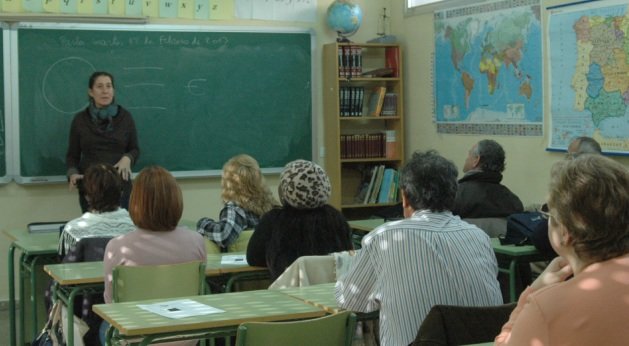África/Rwanda/31 Julio 2016/Fuente:Newtimes /Autora: Cristine Osae
Resumen: Alta matrícula, horarios de trabajo del alumno en conflicto, y la pura comodidad de clases una vez a la semana han empujado a muchas universidades para programar cursos nocturnos. Las clases nocturnas traen desafíos especiales de enseñanza. Estos estudiantes tienden a interactuar socialmente más de estudiantes de día, lo que exige intervenciones instructor frecuentes para mantener la calma y el orden, y muchos vienen a clase abrumado, hambrientos y cansados.
High enrollments, conflicting student work schedules, and the sheer convenience of once-a-week classes have pushed many universities to schedule evening courses.
Held from 6pm to 9pm or 7pm to 10pm, these classes at some institutions are typically packed, sometimes with more than 100 students in a large lecture theater. How can faculty effectively teach, control, or even simply keep awake the students in such classes, many of whom start their days very early in the morning with unimaginable responsibilities?
Those out in the working world would agree that it’s just not often practical to get time to up-skill and, as a result, full-time education isn’t an option. Part-time or evening courses represent a more practical alternative. Make no mistake; gaining work experience is absolutely vital in improving your employability status. An evening course provides a student with the time needed to gain valuable work experience that perhaps a full-time student may not have.
However, one can agree that it is tedious because classes are taken when one is too exhausted. In addition, balancing school work and employment is quite a crack-down. Plus, one may not get to consult with the lecturers or even get time for extensive reading because time is a luxury. Nevertheless, with the right attitude comes the determination to excel. If anything, what are the options?
Evening classes bring special teaching challenges. These students tend to interact socially more than day students, necessitating frequent instructor interventions to maintain calm and order, and many come to class overwhelmed, hungry and tired. In addition, there are the usual challenges: poor lighting conditions in many large lecture theaters; lack of, or poor-quality, audiovisual equipment; and distractions caused by student electronic devices such as cell phones, iPods, or laptops. Under such conditions, even the most ardent instructor can become frustrated.
How educators can help
In most large evening classes, there is always a mix of students, ranging from the highly motivated to the couldn’t-care-less types. To enhance student engagement and maintain interest, one ought to incorporate strategies such as combining audiovisuals (PowerPoint presentations, short video clips, and transparencies) with class discussions and activities. Doing so is challenging in large classes set in «lecture-only» theaters. However, passionate educators are quite creative and can improvise.
Although PowerPoint isn’t exactly a brand-new technology, most traditional lecturers would rather use chalk or markers. This is not to ridicule chalk or markers but rather call for more creativity. The argument is that use of illustrations and pictures interspersed with text slides as much as possible may engage the student’s interest. Many students are usually relatively fresh at the beginning of class and are likely to remain attentive through the whole lecture should you make it stimulating and relatable. A point noteworthy is that PowerPoint presentations can make learners passive unless the lecturer involves them.
Intergroup questions are equally an amazing approach with evening students. Before the first class meeting of a semester, organise students in groups of five to ten and post group numbers and the names of group members on a notice board, where students can access them. During the first meeting, call students’ names and ask them to move into their groups for a «get-to-know-each- other» session and information exchange. To maintain regularity, ask group members to stay with their groups at the same location in the lecture theater in future meeting sessions. Each group can prepare intergroup questions for other groups to answer, or the lecturer can assign topics for discussion. With these groups, a lot can be achieved within the lecture room.
This system works well in a number of ways. It encourages students to read course material ahead of time; helps the instructor cover course content and explain concepts and material that are not clear during the question-and answer session; keeps students motivated and energized by requiring individual responsibility, attention, and group commitment (no one wants to be blamed for letting the group down); encourages active participation among students, allowing them to develop and polish their oral communication skills; gives students a sense of owning the questions and the learning; and creates excitement and a sense of achievement, especially if group members answer their questions correctly.
Short quizzes also come in handy if the evening students are to be kept on toes. During the last ten to fifteen minutes of each evening session, an optional extra-credit quiz worth ten to fifteen points can be given. The quiz, which can be multiple-choice, is given on a projection screen (eliminating unnecessary copying). Of course during the quizzes, the instructor has to remain vigilant, moving around the room to discourage students who whisper to each other, exchange answer sheets, or check their notes. All the points students accumulate over the weeks can be put into a «point savings account» that students can see on the board. The «fatter» the account gets, the more motivated students become to keep it high.
The quiz is very popular and has obvious benefits. It allows students to monitor their understanding of the lecture session’s material right away; it gives the instructor feedback about the quality of instruction and student understanding; it motivates (or forces) students to stay for the entire class, as the quiz is administered at the very end; it encourages students to pay attention to the material presented (because of the pressure of immediate assessment); it allows the instructor to monitor daily attendance; and it saves the instructor’s time, because some of the quiz questions can be rephrased and used on midterms and the final.
Today, with an increasing number of nontraditional students returning to school, we are challenged to develop creative and innovative ways to make our classes work for them and to make our course material relevant to their daily lives. Evening classes, which afford these students flexibility and convenience, are one way to meet their needs.
Fuente de la noticia: http://www.newtimes.co.rw/section/article/2016-07-20/201861/
Fuente de la imagen: http://footage.framepool.com/shotimg/qf/799929145-banco-de-escuela-curso-para-adultos-nairobi-asistencia-a-la-escuela.jpg


 Cada vez son más las personas que se interesan por las diferentes propuestas formativas que ofrecen estos centros de educación para adultos, ya sea para completar su formación académica o para interesarse por temáticas relacionadas con el mundo de la cultura.
Cada vez son más las personas que se interesan por las diferentes propuestas formativas que ofrecen estos centros de educación para adultos, ya sea para completar su formación académica o para interesarse por temáticas relacionadas con el mundo de la cultura.



 Users Today : 69
Users Today : 69 Total Users : 35459535
Total Users : 35459535 Views Today : 99
Views Today : 99 Total views : 3417857
Total views : 3417857